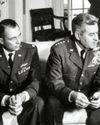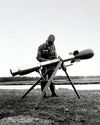
After Egypt amassed huge debts to European banks and a nationalist uprising led by Ahmed Urabi flared up and threatened Imperial control in the region, the British government decided to act: first with a naval bombardment of Alexandria then a full-scale invasion. Urabi was defeated by British forces under Garnet Wolseley at the Battle of Tell El Kebir in September 1882.
The British initially had little interest in events in Sudan and left the matter to the ruling Khedive. As Michael Asher writes: "[Lord] Baring [the British consul-general of Egypt] did not find the policy of abandoning the Sudan a hard pill to swallow... he felt that the key to success was financial solvency. Jettisoning the vast deserts and swamps to the south would be an immense blow to Egypt's pride, but a great asset to her exchequer."
London urged Egypt to evacuate its troops from Sudan. The Egyptians agreed and appointed General Charles Gordon to oversee matters (Gordon had previously served as governor-general of Sudan from 1876 to 1879.) Unfortunately for London, Gordon had different ideas and saw the Mahdists as something to be defeated rather than appeased.
Denne historien er fra Issue 110-utgaven av History of War.
Start din 7-dagers gratis prøveperiode på Magzter GOLD for å få tilgang til tusenvis av utvalgte premiumhistorier og 9000+ magasiner og aviser.
Allerede abonnent ? Logg på
Denne historien er fra Issue 110-utgaven av History of War.
Start din 7-dagers gratis prøveperiode på Magzter GOLD for å få tilgang til tusenvis av utvalgte premiumhistorier og 9000+ magasiner og aviser.
Allerede abonnent? Logg på

NAUMACHIA TRUTH BEHIND ROME'S GLADIATOR SEA BATTLES
In their quest for evermore novel and bloody entertainment, the Romans staged enormous naval fights on artificial lakes

OPERATION MANNA
In late April 1945, millions of Dutch civilians were starving as Nazi retribution for the failed Operation Market Garden cut off supplies. eet as In response, Allied bombers launched a risky mission to air-drop food

GASSING HITLER
Just a month before the end of WWI, the future Fuhrer was blinded by a British shell and invalided away from the frontline. Over a century later, has the artillery brigade that launched the fateful attack finally been identified?

SALAMANCA
After years of largely defensive campaigning, Lieutenant General Arthur Wellesley went on the offensive against a French invasion of Andalusia

HUMBERT 'ROCKY'VERSACE
Early in the Vietnam War, a dedicated US Special Forces officer defied his merciless Viet Cong captors and inspired his fellow POWs to survive

LEYTE 1944 SINKING THE RISING SUN
One of the more difficult island campaigns in WWII's Pacific Theatre saw a brutal months-long fight that exhausted Japan’s military strength

MAD DAWN
How technology transformed strategic thinking and military doctrine from the Cold War to the current day

BRUSHES WITH ARMAGEDDON
Humanity came close to self-annihilation with the Cuban Missile Crisis, Broken Arrows’ and other nuclear near misses

THE DEADLY RACE
How the road to peace led to an arms contest between the USA and USSR, with prototypes, proliferation and the world’s biggest bomb

THE MANHATTAN PROJECT
Einstein, Oppenheimer and the race to beat Hitler to the bomb. How a science project in the desert helped win a war